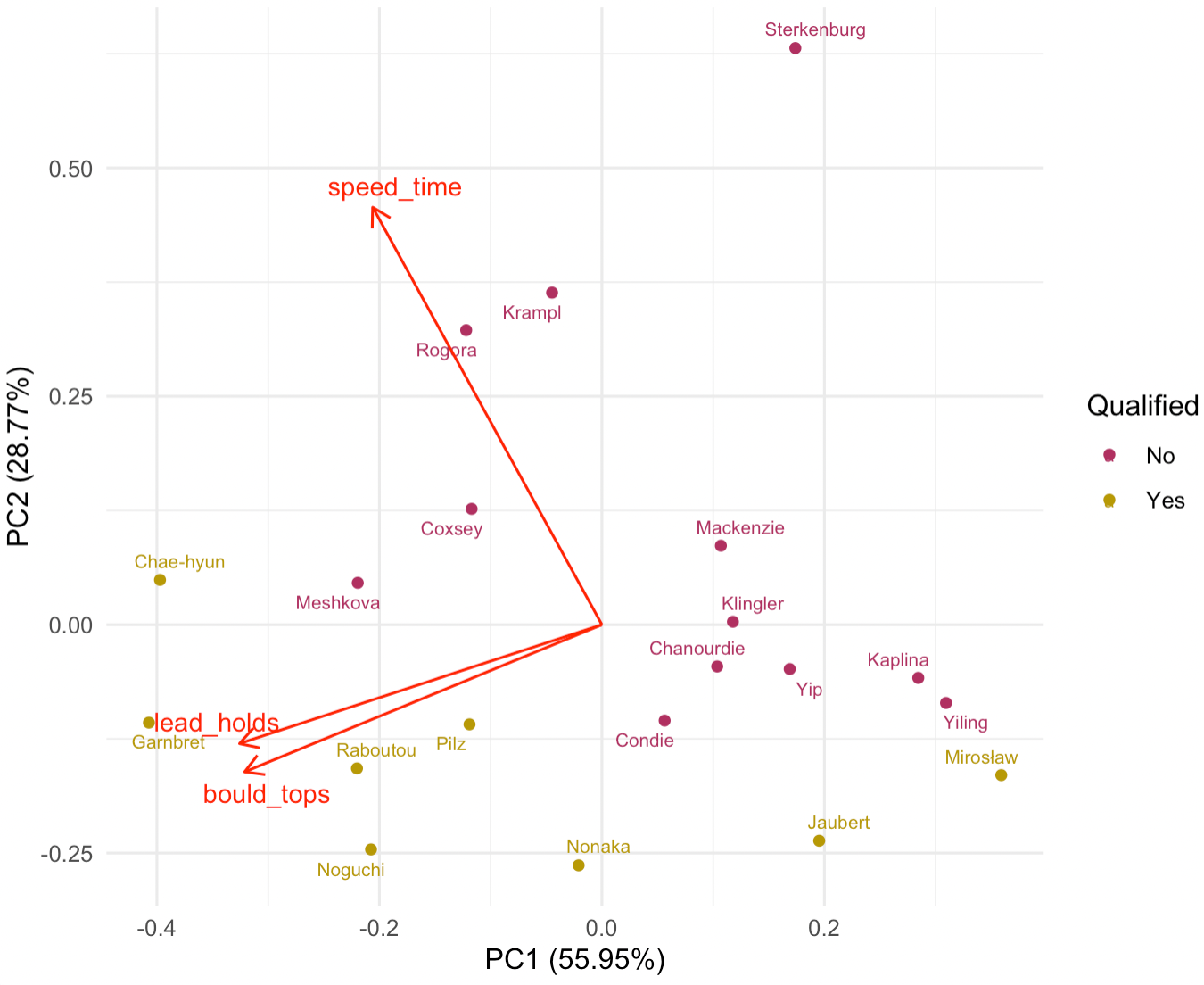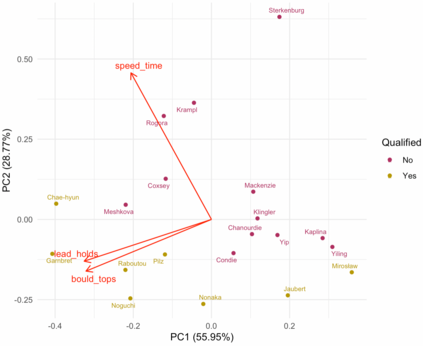Sport climbing, which made its Olympic debut at the 2020 Summer Games, generally consists of three separate disciplines: speed climbing, bouldering, and lead climbing. However, the International Olympic Committee (IOC) only allowed one set of medals per gender for sport climbing. As a result, the governing body of sport climbing, rather than choosing only one of the three disciplines to include in the Olympics, decided to create a competition combining all three disciplines. In order to determine a winner, a combined scoring system was created using the product of the ranks across the three disciplines to determine an overall score for each climber. In this work, the rank-product scoring system of sport climbing is evaluated through simulation to investigate its general features, specifically, the advancement probabilities for climbers given certain placements. Additionally, analyses of historical climbing contest results are presented and real examples of violations of the independence of irrelevant alternatives are illustrated. Finally, this work finds evidence that the current competition format is putting speed climbers at a disadvantage.
翻译:国际奥林匹克委员会(国际奥委会)只允许每性别一枚奖牌用于体育攀登,因此,体育攀登的管理机构,而不是只选择三个学科中的一个学科列入奥林匹克运动,决定建立一个将所有三个学科结合起来的竞争。为了确定一个获胜者,利用三个学科的排名产品创建了一个综合评分系统,以确定每个攀登者的总得分。在这项工作中,通过模拟对体育攀登的品位评分系统进行评估,以调查其一般特征,具体而言,即某些职位给攀登者带来的提高概率。此外,还介绍了历史攀登竞赛结果分析,并展示了违反不相关替代品独立性的实际例子。最后,这项工作发现有证据表明,当前的竞争模式正在使快速攀登者处于不利地位。




